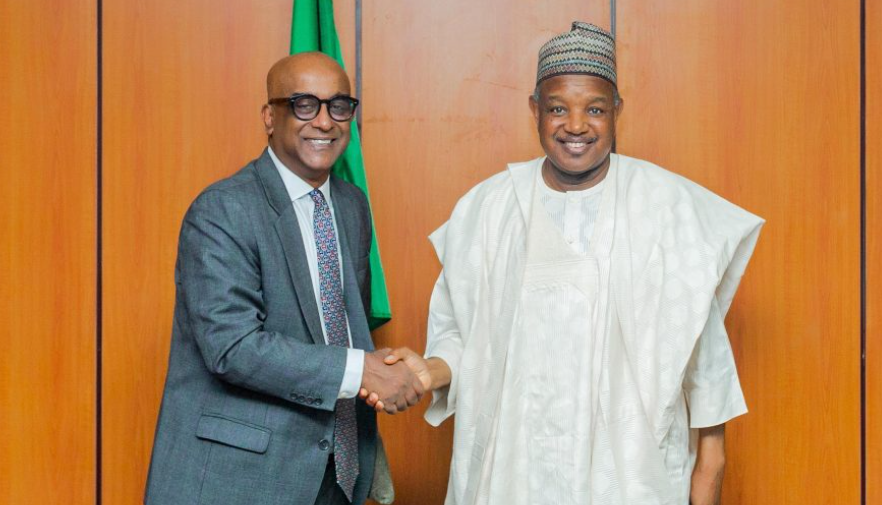Connect with us
Published
4 weeks agoon
By
dplanatenews
Nigeria has once again found itself in the spotlight of global economic and developmental discussions as the World Bank commends the Federal Government’s Ward Development Programme (WDP)—an initiative designed to boost grassroots governance and rural infrastructure. At the same time, the Central Bank of Nigeria (CBN) has reassured citizens and investors that a rate cut is firmly on the horizon, offering relief to businesses and households burdened by high interest rates.
These two developments mark significant steps in the country’s ongoing struggle to balance economic reforms, inclusive development, and monetary stability. Together, they highlight how international institutions and domestic policymakers are working to align Nigeria’s growth trajectory with the expectations of its people.

The Ward Development Programme is an initiative designed to decentralize governance and bring development closer to the people. Implemented at the ward level—the smallest administrative unit in Nigeria—the programme focuses on providing resources directly to communities for:
By empowering local governments and communities to make decisions based on their immediate needs, the programme seeks to reduce bottlenecks in development delivery.
The World Bank’s commendation did not come lightly. In its recent evaluation, the Bank highlighted several reasons why the Ward Development Programme stands out as a model for grassroots engagement:
According to the World Bank’s report, Nigeria’s WDP represents a “clear pathway toward inclusive growth” that many other African countries can replicate.
While the World Bank is praising Nigeria’s development efforts, the Central Bank of Nigeria (CBN) is tackling a different but equally critical issue—high interest rates.
Currently, Nigeria’s Monetary Policy Rate (MPR), which influences borrowing costs across the economy, has been maintained at restrictive levels to curb inflation. However, this has placed a significant burden on:
In response, the CBN, under the leadership of its current governor, has reassured Nigerians that a rate cut is imminent. According to the bank, easing monetary policy will help stimulate economic activity, lower the cost of borrowing, and boost investment.
This announcement comes at a time when businesses are desperate for relief from rising costs, and ordinary citizens face pressures from inflation, food shortages, and unemployment.
At first glance, the Ward Development Programme and the CBN’s rate cut plans may seem unrelated. Yet, when viewed together, they paint a holistic picture of Nigeria’s approach to economic reform:
In essence, Nigeria is attempting a dual-track approach: empower communities while also boosting the broader economy through supportive monetary policies.
If both the World Bank-backed WDP and the CBN’s proposed rate cut are fully implemented, the potential benefits for ordinary Nigerians include:
While the outlook is promising, Nigeria faces several obstacles:
These challenges underscore the importance of balanced policymaking that maintains economic stability while still driving development.
The World Bank’s endorsement of Nigeria’s WDP signals confidence in the country’s governance reforms. It also has broader implications:
Nigeria stands at a critical crossroads. With the World Bank applauding its Ward Development Programme and the CBN preparing to ease monetary policy, the country has a unique opportunity to drive both grassroots inclusion and macro-economic growth.
If implemented with transparency, accountability, and commitment, these policies could provide long-term solutions to some of Nigeria’s deepest challenges—poverty, unemployment, and inequality.
The message is clear: development must begin at the grassroots while monetary policy ensures the national economy supports these local initiatives. Together, they offer a roadmap for Nigeria to achieve inclusive, sustainable growth in the years ahead.
